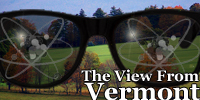No easy road for U.S. nuclear new build
Getting the NRC license is just the first step

A message from Electrical Builders, Ind.
America’s Top Performing Nuclear Plants Rely on Electrical Builders, Industries to Expand and Extend the Life of Their Critical Electrical Assets
Getting the NRC license is just the first step
One of my college roommates served for a while as the manager of our football team; we would talk about the "tape review" sessions that were used by the team to evaluate past performance and to prepare for future opponents. Nuclear organizations, for their part, often have highly developed "lessons learned" programs and they practice the use of technical methods that have been successfully employed by other organizations.
 For many years, I practiced yoga and Aikido, both of which included considerations of full-attention and the ancient Buddhist practice of mindfulness. A spiritually enlightened person is mindful. She pays attention to what she is actually doing and to the reality of her life and actions. Such a person does not live in a world of daydreams or overly-complex thought processes. She does not live in the past or in the future. The enlightened person is "here now."
For many years, I practiced yoga and Aikido, both of which included considerations of full-attention and the ancient Buddhist practice of mindfulness. A spiritually enlightened person is mindful. She pays attention to what she is actually doing and to the reality of her life and actions. Such a person does not live in a world of daydreams or overly-complex thought processes. She does not live in the past or in the future. The enlightened person is "here now."
This evening there will be a debate on a nuclear referendum that is on the town ballot in Plymouth, Mass. The referendum calls for a halt to relicensing the Pilgrim nuclear power plant, pending implementation of Fukushima lessons learned.
 Plymouth, Massachusetts, "America's Home Town," is the place where the pilgrims landed, and is also the home of the Pilgrim nuclear power plant. On March 29, a forum was held in Plymouth to discuss a non-binding ballot question for the town election in May. The question is whether or not to freeze the plant's relicensing process until all the Fukushima fixes are completed.
Plymouth, Massachusetts, "America's Home Town," is the place where the pilgrims landed, and is also the home of the Pilgrim nuclear power plant. On March 29, a forum was held in Plymouth to discuss a non-binding ballot question for the town election in May. The question is whether or not to freeze the plant's relicensing process until all the Fukushima fixes are completed.
Tamil Nadu provincial government support pulls rug out from under protest groups
We are within one week of the one year anniversary of the Great North East Japan Earthquake and Tsunami. That powerful punch from nature slowly destroyed four out of six of the nuclear units at Fukushima Daiichi while the world watched with rapt attention.
 When I am reading an article or a blog post, I always appreciate when the writer places the immediate events into a bigger context. I always try to do this myself. Putting Vermont Yankee issues in context, however, is like facing a huge mountain range. There is always another set of hills beyond this one. Which mountain? Which context? Where to start?
When I am reading an article or a blog post, I always appreciate when the writer places the immediate events into a bigger context. I always try to do this myself. Putting Vermont Yankee issues in context, however, is like facing a huge mountain range. There is always another set of hills beyond this one. Which mountain? Which context? Where to start?
Several weeks ago in the quiet community of Gaffney, South Carolina, I attended a public meeting held by the Nuclear Regulatory Commission to discuss the potential environmental impact of Duke Energy's proposed William States Lee III site. About 100 anti-nuclear activists also descended on the meeting.
On February 2, 2012, Time Magazine's Ecocentric blog published a post titled Exclusive: How the Sierra Club Took Millions From the Natural Gas Industry-and Why They Stopped that has rocked the environmental community and the established energy industry. The story included the shocking news that the Sierra Club had accepted donations from Chesapeake Energy or its executives totaling nearly $26 million during the period from 2007-2010.
Federal District Court rules against efforts by the State of Vermont to assert regulatory authority over radiological safety issues
Once upon a time...
 On March 21, 2011, the Nuclear Regulatory Commission issued a renewal of the operating license for the Vermont Yankee nuclear power plant for an additional 20 years. Vermont Yankee's original license would have expired on March 21, 2012, and its state-issued Certificate of Public Good does expire on that date. Most commentators agree that March 21 will not be the last day the plant operates, but the date does give opponents a focal point, and they are planning some kind of civil disobedience on that day. The question remains: Who are "they"?
On March 21, 2011, the Nuclear Regulatory Commission issued a renewal of the operating license for the Vermont Yankee nuclear power plant for an additional 20 years. Vermont Yankee's original license would have expired on March 21, 2012, and its state-issued Certificate of Public Good does expire on that date. Most commentators agree that March 21 will not be the last day the plant operates, but the date does give opponents a focal point, and they are planning some kind of civil disobedience on that day. The question remains: Who are "they"?
 Back in the playground-about half a century ago-I learned that it can be fun and frustrating to the bullies if you cheerfully accept the tags that they apply to you. Back then, I was called a four-eyed nerd; for some odd reason I had schoolmates who thought it was a bad thing to be the one who got straight A's and seemed to enjoy learning. The teasing did not bother me; it motivated me to read more good books and to strive to do even better in class.
Back in the playground-about half a century ago-I learned that it can be fun and frustrating to the bullies if you cheerfully accept the tags that they apply to you. Back then, I was called a four-eyed nerd; for some odd reason I had schoolmates who thought it was a bad thing to be the one who got straight A's and seemed to enjoy learning. The teasing did not bother me; it motivated me to read more good books and to strive to do even better in class.
A so-called scientific article issued on December 19 by Joseph Mangano and Janette Sherman purports that an estimated 14,000 excess deaths in the United States are linked to the radioactive fallout from the damaged Fukushima Daiichi nuclear reactors in Japan. The article, published in the International Journal of Health Services, is available by clicking here.
Projects in Koodankulam and Jaitapur will be set back
By Howard Shaffer